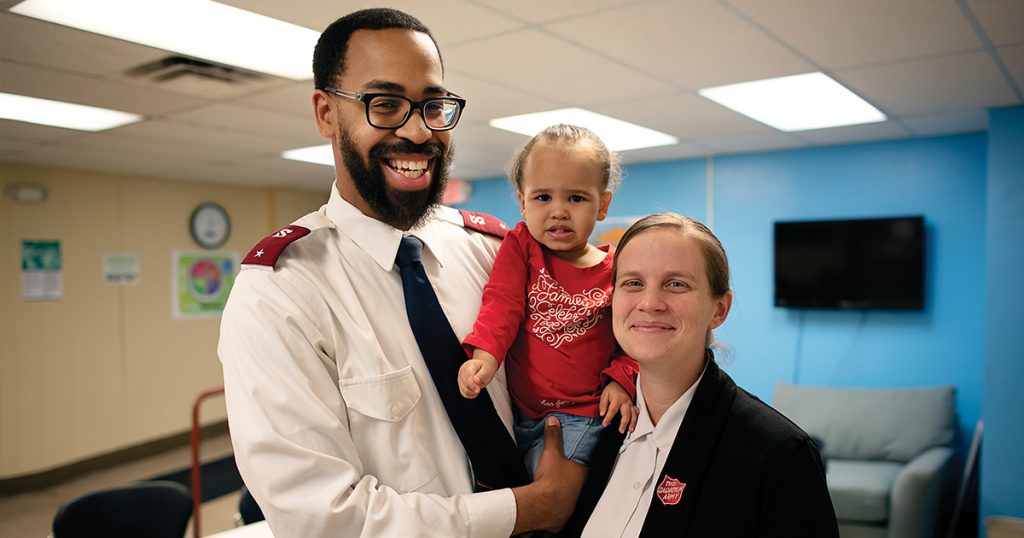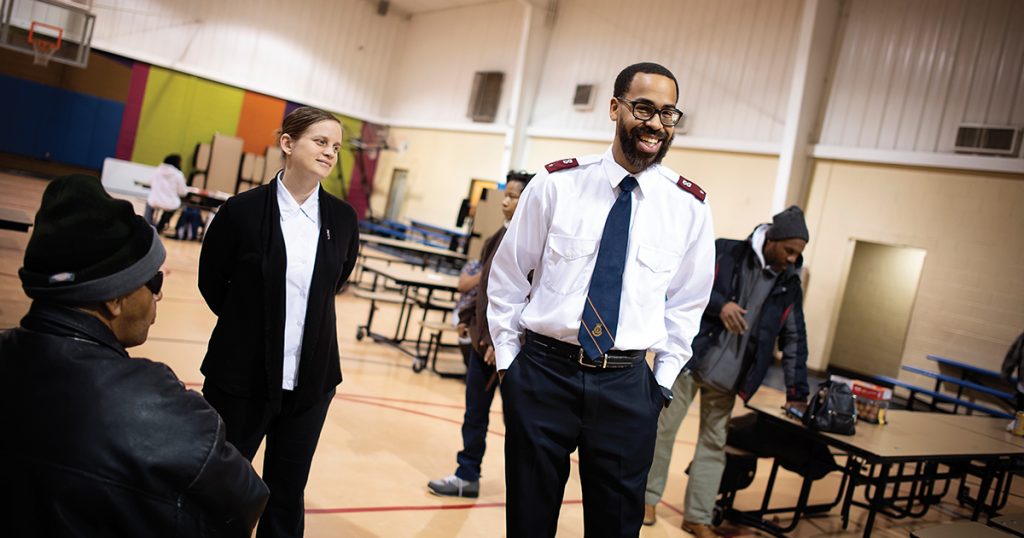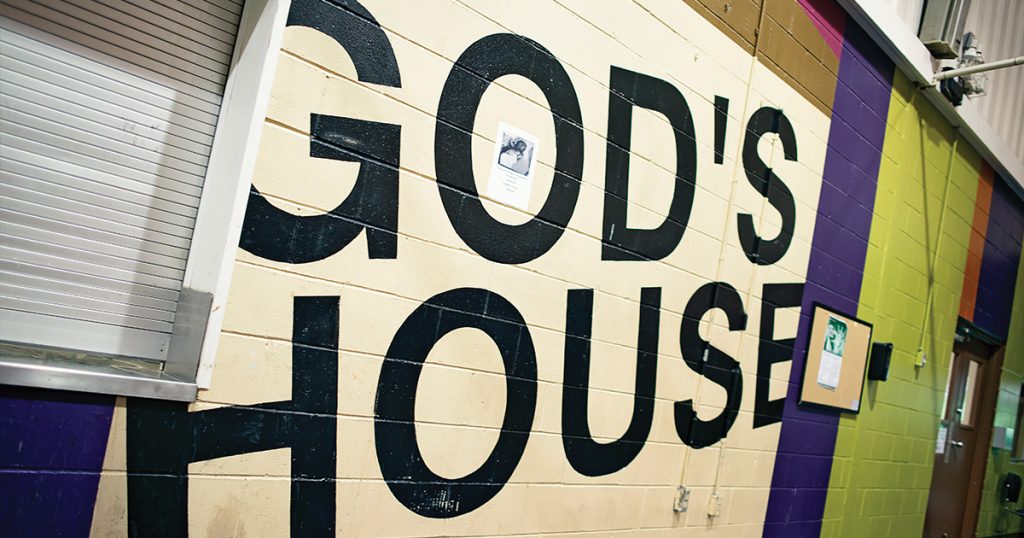Safe Haven at The SAL
"I felt like I had to be good enough for love. But that's not really the love God has for us. It's unconditional. Even when we are a mess. We want to show that unconditional love of God."
Continuing our Expert Witness series, the “War Cry” caught up with two very busy, young, energetic and compassionate officers giving oversight to “The SAL,” a ministry of The Salvation Army in North Omaha. Lieutenant Kenneth Jones and Captain Sam Nolan Jones have been giving dedicated service to the Omaha community for over a year. We sat down with them recently to talk about the challenges they face each day at the North Omaha Corps in providing a safe haven for children and families at risk. Both have unique stories of how God used The Salvation Army in their past to bring redemption through opportunity.
WC: Tell our readers how you came to meet The Salvation Army.
Kenneth: I met The Salvation Army through a soup kitchen in Detroit. Our family couldn’t really make ends meet and we depended on several soup kitchens in the neighborhood, and The Salvation Army was one of them. What made The Salvation Army unique was that they had different programs they were offering. I remember hearing the sound of basketballs and dodgeballs, and I was like, “What’s going on?” They were like, “Oh yeah, we played. We have an after-school program.” We didn’t get involved at the time, but a couple of months later, the corps was holding a Vacation Bible School. I didn’t really want to go, but everyone in my family was going, so I went too. I started attending the programs and I fell in love with it! I was seven years old at the time.
Sam: My dad was referred to the Department of Family Services, as he was working all the time. Because of that, I had to go to The Salvation Army in St. Louis. I got picked up every day for the after-school program. The Salvation Army became a safe haven for me.

WC: What are some of the challenges you face at The SAL?
Sam: One of our big challenges is [finding] leaders willing to come in and help us lead the program. We want to make our hours of operation longer so children will have a safe place to be doing productive things, like learning life skills. But we need people to support us in giving that opportunity for the kids.
Kenneth: I grew up in an area where mentors weren’t present. The only mentors were the drug dealers and the rappers. I didn’t have a father growing up, so I had something of an identity crisis without a male figure in my life. When I finally did get a mentor, it gave me the opportunity to express my feelings and be vulnerable, which is atypical for men. Having male leaders to help at The SAL would be great. Scripture reminds us how iron sharpens iron. We forget that the ironing process can be hard and dirty. I am thankful for the mentors in my life who have helped me grow as a father and pastor. I felt lost growing up not having those types of men to support me. We really want the kids here at The SAL to have more positive role models in their lives.
Sam: I was an angry kid and very disrespectful. The community center staff in St. Louis showed me their love and support when I was growing up. Our kids here are rough and not easy to deal with at times. But the reality was that the Salvation Army staff were there for me. The employees and officers taught me and really supported me. They showed me love. We want to do the same for the kids here. My mom challenged my view of love, because I felt like I had to be good enough for love. That’s not really the love God has for us. It’s unconditional—even when we are a mess. We want to show that unconditional love of God.
WC: Tell us about what you offer at The SAL.
Kenneth: The first thing we do is offer a safe haven for our kids in this community. There aren’t many after-school programs in our area. We have structures and standards here that are different from what these kids find in their world. For instance, we don’t allow profanity. The kids come from backgrounds where
Sam: If you ask one of our young girls who is not 13 yet what she wants to be when she grows up, she says matter-of-factly that she wants to be a sexual dancer to pay her bills. She pushes back on our character-building programs. When I encourage her to keep at it and tell her earning program badges could qualify her for money to go to college, she just laughs at me and says, “Captain Sam, I’m not going to college.” In her mind, going to college is not an option, but aspiring to be a sexual dancer is. It’s absolutely heartbreaking.
Kenneth: And that is why being a safe haven is so important to us. We can let them see something they are not used to seeing. If it wasn’t for my community center director pushing and telling me, “You have potential. You can get out of here. You have great things that you can become,” who knows where I would be or what I would have become. Our young people don’t [realize] their potential. We have to sell them hope, so they can tap into possibilities that await them.

WC: Is there anything else our readers should know about you?
Kenneth: That we love the ministry of The Salvation Army. We are all about William Booth’s vision when he said, “Go for souls, and go for the worst.” We just want to love on young people and give them hope and see them develop to where God wants them to be. We share our testimony and shine our light and care about those who need what we have to offer here at The SAL. We want to embody Christ as hard as we can. We are just going to keep pouring into the lives of others and keep fighting the good fight.
Sam: If we get back to the basics, be Holy-Spirit-filled people, surrendered and faithful, we know God can do new things today through us. That is what we hope to do in our little area of The Salvation Army.







